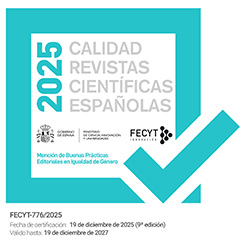About the Journal
Aims and Scope
The Grove – Working Papers on English Studies is the journal of the HUM-271 Research Group at the University of Jaén. The Grove is an international peer-reviewed academic journal which has been publishing since 1996. The journal has been published in printed format since its foundation, and now an open-access online version is available on its website for free.
The Grove is primarily aimed at specialists in any area of English Studies. The major scope of the journal is literatures in English, critical theory, English language and linguistics, translation, English as a foreign language and cultural studies.
The Grove publishes annually, in December, and includes articles, book reviews and literary contributions. Call for papers opens in February and closes at the end of June for issues to be published the same year or considered for the following year's issue if the number of submissions is high.
The Editor kindly invites submissions in English or Spanish of original, unpublished articles and book reviews within the domain of the above topics, as well as unpublished poems or short literary contributions. Multiple submissions of the same author or redundant publications would not be considered. Contributions should be unpublished and not considered for publication elsewhere. Otherwise, they will be automatically declined.
During the process of article assessment, authors must communicate all relevant information regarding any external funding of the research that led to the elaboration of the work under consideration, namely: funding agency, call, project reference and (optionally), title. This information must also appear at the beginning of the article.
Articles, book reviews and literary contributions for publication should be submitted through the journal website.
There are no fees to publish in this journal.
























